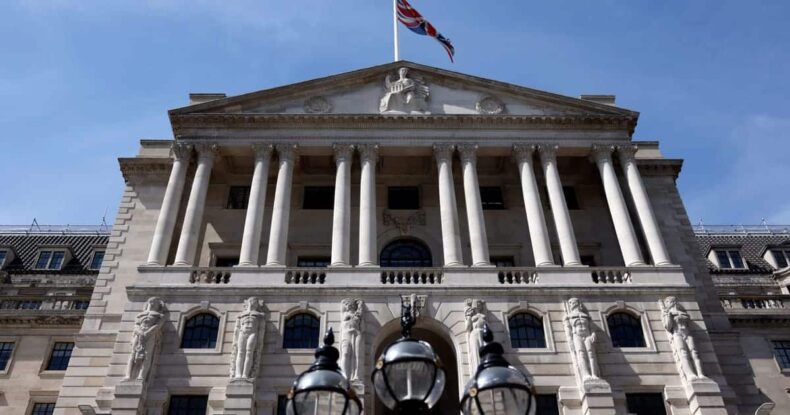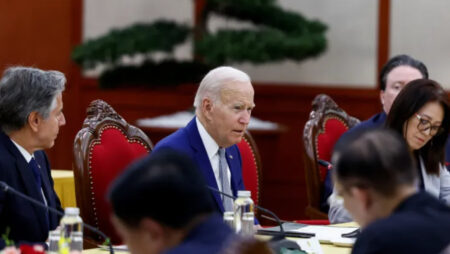Conservative legislators, former BOE officials, and City analysts have all demanded an immediate response to ease the market’s jitters, but the central bank has been mute to this point.

The Bank of England is under increasing pressure to act as UK markets are experiencing extreme volatility. Governor Andrew Bailey’s alternatives are constrained, and each one is risky, which is his problem.
Conservative legislators, former BOE officials, and City analysts have all called for immediate involvement to ease market tensions, but the central bank has been mute to thus point. According to a source with knowledge of the situation, the institution has not yet determined whether or not to issue a statement, but it is closely monitoring the market.
In a memo on Monday, Evercore’s Krishna Guha stated that “the Bank has no good options.” We believe the bank would much rather wait to act between meetings rather than risk making a move that might not work out. Instead, the bank will wait to see if the government will act or if the markets can find a short-term floor.
Here are some of the options the BOE may have to stop the rout that came after the new administration’s proposal for significant tax reductions. Bond prices rose, the pound fell to an all-time low, and speculators’ bets on BOE interest rate increases soared.
Reassurance from BOE (The Bank of England )
The simplest, short-term solution would be for Bailey or the BOE to issue a statement of assurance to the markets and the nation, akin to what former governor Mark Carney did the morning following the Brexit vote in 2016.
According to Sky News, that might happen as soon as Monday. A written declaration or a broadcast speech could be used to make such a claim. Adam Posen, a former BOE policymaker, advised that the governor declare “publicly by mid-week” that interest rates will increase if the value of the pound falls.
If Bailey doesn’t speak, one of the BOE policymakers speaking this week might be handed the position. Huw Pill, chief economist, is the most likely contender and will speak on Tuesday. The question is whether words alone will be effective given how unstable the markets remain.
Emergency increase in prices
That might open the door for an urgent rate increase. Beginning at the end of last week, calls for such a move have gotten louder. The BOE increased rates to 2.25% this year to combat inflation, with the most recent adjustment occurring the day before Friday’s fiscal statement. Despite this, the BOE has come under fire for not acting quickly enough.
By the BOE’s next meeting in November, the money markets anticipate rate increases of 200 basis points, which is more than quadruple the magnitude of its previous increase. Bets that big can indicate hedging against a sudden shift.
By the BOE’s next meeting in November, the money markets anticipate rate increases of 200 basis points, which is more than quadruple the magnitude of its previous increase. Bets that big can indicate hedging against a sudden shift.
An emergency action runs the risk of escalating the market’s perception of panic, especially if it fails to stop the losses. According to Dan Hanson of Bloomberg Economics, the BOE might decide against making such a step in order to avoid directly criticising the government’s actions.
According to Rishi Mishra, an analyst at Futures First, “the fundamental problem with an emergency hike right now is that it would have to be 200 basis points to work because the market already pricing in meaningful odds of 100 basis points.”
The summer of criticism the central bank received from the currently in office legislators may complicate the BOE’s response. Although Chancellor of the Exchequer Kwasi Kwarteng has since stated that the government is dedicated to BOE policy independence, Prime Minister Liz Truss had intimated during her campaign for the leadership that she would reconsider the bank’s mandate.
Pause QT
The BOE delaying its planned sale of the gilts it purchased as part of quantitative easing is one conceivable response to the changes in the bond market. The procedure is set to start the following week.
That, however, might be perceived as going against prior advice and flying in the face of efforts to contain inflation.
A “high threshold for revising the expected reduction in the stock of bought gilts” has been stated by the BOE. Additionally, it has already been mentioned that the conditions apply to how the market is operating. Despite the significant losses throughout the curve, Gilt trading was orderly on Monday.
Officials stated last week that the Financial Policy Committee will “also have a role in determining whether that standard was met” through its evaluation of financial stability.
Direct market intervention
The UK also has the option of immediately interfering to support the pound. The task is made more difficult by the fact that the UK’s foreign currency assets are only a small portion of the enormous stockpiles that may be required.
The final option
The only choice is to wait for the market response to play out before making any policy decisions in November. Then Kwarteng and Truss would have time to make their own effort to reassure investors about their ambitions. Read about Bank of England on verge of largest interest rate hike since 1995 ?













